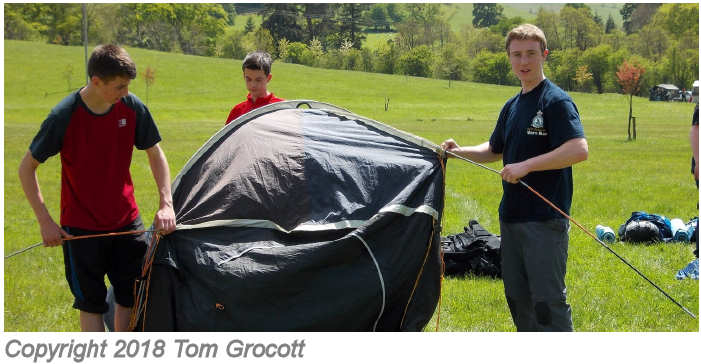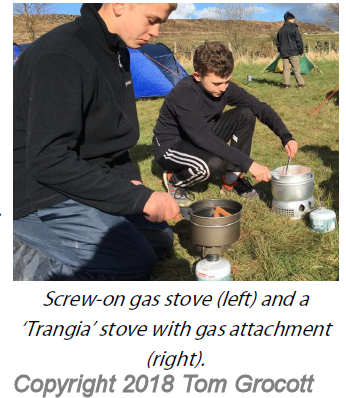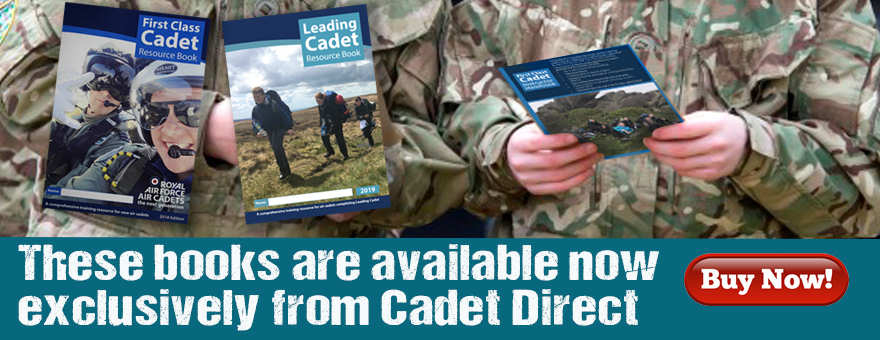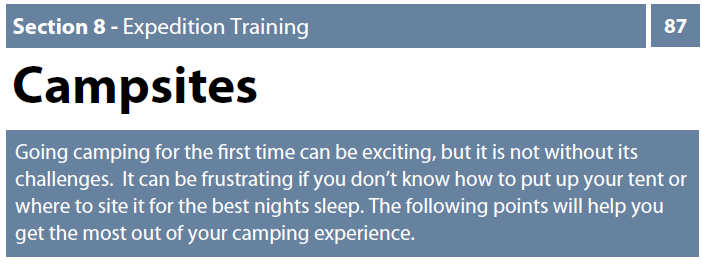Air Cadet Expedition Training
Going camping for the first time can be exciting, but it is not without its challenges. It can be frustrating if you don’t know how to put up your tent or where to site it for the best nights sleep. The following points will help you get the most out of your camping experience.
Choosing a Tent
• Try to avoid using cheap ‘festival’ type tents on expedition. They are often not particularly waterproof and may blow away or become damaged in high winds.
• Look for tents with a ‘hydrostatic head’ (HH) of 3000mm or more. This number shows how waterproof a tent is. 3000mm HH will keep you dry for most UK camping.
• Share a tent with others to share the weight. But you must make sure the tent is big enough for all of you. Try it out before your expedition.
NB. This entire article is an extract from the First Class Cadet Resource Book. Please note this information is subject to Copyright 2018 Thomas Grocott. Not for reproduction. Thomas Grocott has asserted his right to be identified as author of this work in accordance with the Copyright, Designs and Patents Act 1988. All rights reserved. Some images in this publication are Crown Copyright and contain public sector information licensed under the Open Government Licence v3.0.
Pitching a Tent
• Pitching a tent can be a challenge for those who have not done it before. Some tents are quite complicated to set up and may need more than one person to put up safely.
• It is vital that you practice putting up the tent you are going to use several times before you actually go out and use it on expedition.
• Cold or wet weather can make a tent much harder to put up.

Siting Your Tent
• Choosing a good spot for a tent will help you to get a good night’s sleep and protect you from potential annoyance or inconvenience.
• Try and find shelter from prevailing winds and flat land safe from potential flooding (usually at least 50 metres away from rivers or other water).
• Don’t pitch tents directly below trees; water will fall off the tree onto the tent.
• Don’t place stones on the tents guide ropes, use pegs to secure them.
• Remove any stones or sticks from underneath a tent. When you are lying down they are surprisingly noticeable, even under a roll mat!
• Keep tents at least 2m apart.
On the Campsite
• Always put litter in a bin if there is one, or keep it with you until you find a bin or finish the expedition. Leaving litter can harm wildlife.
• Make sure no food is left out overnight. This often attracts unwelcome wildlife in the middle of the night like foxes.
• Keep the campsite and your tents tidy. Don’t leave equipment outside as it may get damaged or stolen by other campers.
• Keep noise to a minimum and respect other campsite users.
• Do not light any campfires unless the campsite owner has given you permission. If they have, be careful and follow all the sites safety rules.
• Ensure the fire is out before you go to bed.
• Cook outside and never in tents. This is a real fire risk.

A stove is one of the most useful pieces of kit that you will carry on your expedition, but it can also be the most dangerous. Use your cooking stove with care.
Types of Stove
• There are many types of camping stove on the market today, and it is up to you to decide which stove is most suitable for your needs.
• Ask for advice before purchasing a stove and borrow one from your squadron or someone else if you can.
• For most Duke of Edinburgh Award Expeditions, a simple screw on stove with mess tins and a gas canister is sufficient.
• Gas canisters must be self-sealing so they don’t leak whilst not in use.

Screw-on gas stove and a ‘Trangia’ stove with gas attachment (pictured above).

Stove Safety
• Don’t cook inside a tent, even if it is cold and wet outside. Tents can set fire in seconds.
• Store gas cylinders outside the tent. Gas leaks in a tent can be fatal.
• Choose a spot for cooking which is far from trees, tents and dry grass to prevent accidental fires. Some campsites have allocated cooking areas.
• Always put out a fire when you have finished with it.
• Do not leave stoves or campfires unattended.
The article above is an extract from the First Class Cadet Resource Book available from www.cadetdirect.com. Please note this information is subject to Copyright 2018 Thomas Grocott. Not for reproduction. Thomas Grocott has asserted his right to be identified as author of this work in accordance with the Copyright, Designs and Patents Act 1988. All rights reserved. Some images in this publication are Crown Copyright and contain public sector information licensed under the Open Government Licence v3.0.




